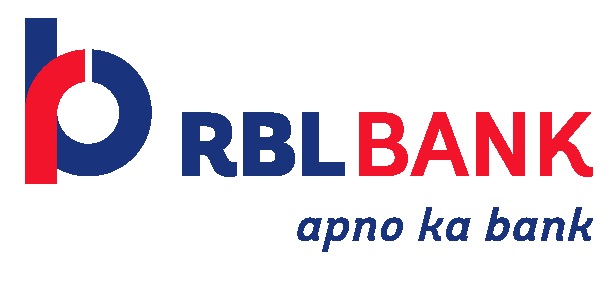Secure Blockchain Gaming in Online Casino and Betting Platforms
A New Era for Financial Transactions
Online casinos like https://blog.vave.com/ and the betting industry have greatly changed in the past two decades. Technology is driving this growth. But, with growth came problems. Issues like lack of transparency and security risks are common. Players often don’t trust if games are fair.
Blockchain technology offers a solution. It promises to make online casinos more secure, transparent, and efficient. This article looks at how blockchain is changing online gambling. It focuses on security, transparency, and benefits for both players and operators.
Decentralized Blockchain: The Basics
Blockchain is a decentralized ledger. It records all transactions across many computers. These transactions are grouped into blocks and linked in a chain. This makes it almost impossible to alter or hack the data. Blockchain’s strength lies in its immutability and transparency. Once recorded, information cannot be changed without the entire network’s agreement. This creates a high level of security.
In online casinos, blockchain ensures every bet, payout, and transaction is transparent. Players can verify everything. One big problem in gambling is the lack of trust. Players often worry about fairness and payouts. Blockchain fixes this by offering an open, verifiable system. It lets players track every bet. This prevents tampering and builds trust, creating a loyal player base. Based on this, blockchain also ensures other benefits. Follow it up below:
Provably Fair Gaming
Blockchain brings a new idea to online gambling called “provably fair” gaming. Traditional casino games, like slots or roulette, use Random Number Generators (RNGs) to decide results. But players can’t always tell if the RNG is truly random or if the house is cheating.
With blockchain, players can verify game outcomes themselves. Cryptographic algorithms allow them to check if the results are fair. Provably fair gaming means neither the casino nor the player knows the outcome before the game is played. This eliminates any chance of cheating. It makes gambling more transparent, giving players more trust and a better experience.
Enhanced Security with Blockchain
Security is a major concern for both players and operators in online gambling. Cyberattacks, data breaches, and fraud are common risks. Blockchain improves security by decentralizing data storage. Instead of relying on one central server, blockchain spreads data across a network of nodes. This makes it much harder for hackers to attack, as there is no single point of failure. For a safe and secure gambling experience, check out Sloto Cash Casino.
Blockchain also uses advanced encryption methods. Transactions and player data are protected by complex cryptographic techniques. This ensures personal and financial information stays safe. This is crucial in online casinos, where large sums of money are at risk. Blockchain’s transparency also helps detect and stop unauthorized activity quickly.
Virtual Money and Transactions
Blockchain offers another big advantage in online casinos: using cryptocurrencies like Bitcoin and Ethereum. Traditional payment methods like credit cards or bank transfers can be slow, expensive, and have restrictions. Cryptocurrencies, however, allow instant, low-cost transactions, giving players a smooth gaming experience.
Using cryptocurrencies also cuts out third-party intermediaries, like banks, which often add fees or cause delays. This is especially helpful in countries with strict gambling laws. Cryptocurrencies provide an alternative to traditional banking. Additionally, cryptocurrency transactions on the blockchain are pseudonymous, offering players more privacy and anonymity.
Automated Contracts
Smart contracts are a key feature of blockchain with big effects on online casinos and betting. These are self-executing agreements that enforce terms automatically when conditions are met. In online gambling, smart contracts can automate payouts, ensuring players get their winnings instantly without manual handling.
This automation lowers the risk of fraud. The rules for payouts are built into the contract and can’t be changed once deployed. For example, in sports betting, once a match ends, the smart contract automatically distributes winnings to the winners. This removes disputes and prevents operators from withholding funds or changing outcomes.
Rules
While blockchain offers many benefits, its use in online gambling comes with challenges. One major issue is regulatory compliance. Many places have strict rules for online gambling, and cryptocurrencies can make things more complicated. Regulators worry about money laundering, fraud, and other illegal activities through anonymous transactions.
To solve this, online casinos must use strong Know Your Customer (KYC) and Anti-Money Laundering (AML) systems. Blockchain can help with this by providing a clear, unchangeable record of all transactions. This makes it easier for operators to track suspicious activities and report them to regulators.
Blockchain at the Service of the Online Gambling Industry
Blockchain technology in online casinos and betting is still new, but its potential is huge. As the technology grows and regulations adapt, we will likely see more blockchain-based gambling platforms. The security, transparency, and efficiency blockchain provides make it a perfect solution for the challenges in online gambling.
In conclusion, blockchain is set to transform the casino and betting industry. It offers a secure, transparent, and efficient platform for both operators and players. From provably fair games to instant cryptocurrency payments, the benefits are clear. As more operators adopt blockchain, the gambling experience will become more trustworthy, smooth, and enjoyable for all players.







